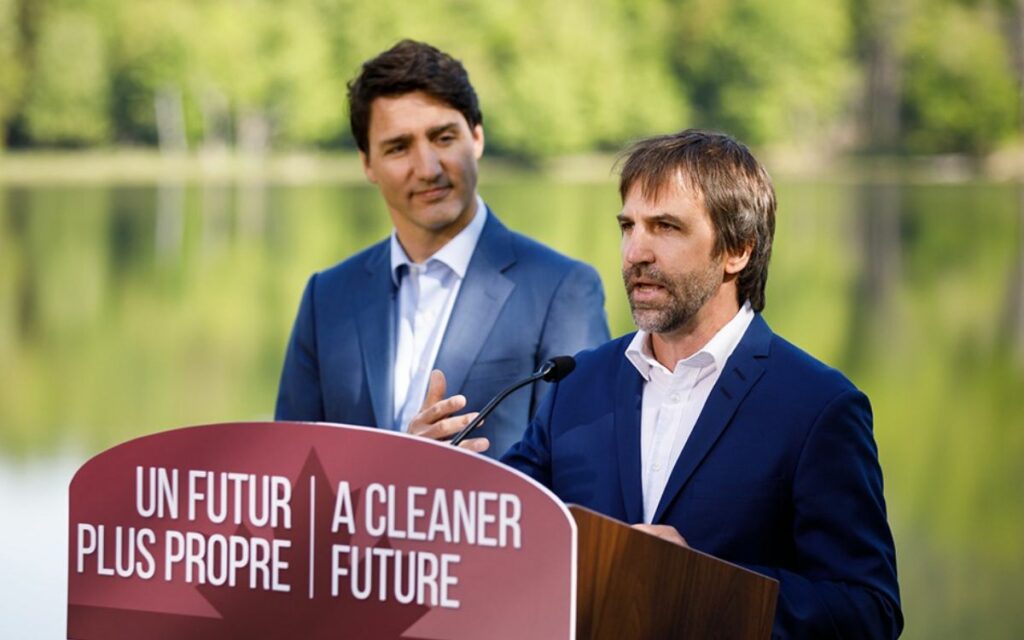
Post-COP28, Canada’s divisive stance on oil and gas emissions surfaces as the government unveils a cap-and-trade system. Political dissent brews as Conservatives criticize job losses, while the NDP deems the plan insufficient, highlighting the uphill battle facing the government in implementing emissions regulations. Photo Credit: PMO
As the world’s largest climate conference, the Conference of Parties (COP) 28, wrapped up last week, the Canadian delegation returned divided on what the future holds for one of Canada’s largest sectors.
Hosted in the United Arab Emirates, over 80,000 delegates came from across the world to discuss how countries can reduce their carbon emissions, especially in the oil and gas sector, in order to slow down global warming and prevent climate change.
As a country that has one of the largest oil and gas sectors in the world, Canada found itself in a bit of an awkward spot at these discussions. Unlike other sectors in Canada, the emissions from oil and gas are on the rise and have increased above the 2005 levels.
During the last election, Justin Trudeau and his Liberals ran on a promise to cut emissions from this sector. Until last week, that promise, like many commitments from this government, had gone cold.
Seeing a national stage as an opportunity to tote Canada’s progress, the federal government decided that in the dying days of COP28 it was time to announce their plan to cut emissions and gain some international clout while showing Canadians they can deliver on their word.
As one would guess, the response at a conference that theme was cutting emissions applaud the government’s new framework, which would set a cap on 2030 emissions at 35 to 38 per cent below 2019 levels and for the sector to be net zero by 2050.
To do this, the government is creating a cap-and-trade system where companies that are successful in reducing their emissions can sell used credits to other companies. Ontario once had a similar program that was applied as their solution to a carbon price. So, is this a second carbon tax?
The federal Conservatives seem to think so. In response to the government’s announcement, Pierre Poilivere responded by saying that the new framework will kill jobs in Canada, send production and revenues, to other countries as the market shifts to meet demand.
The Conservatives have long been against the government’s approach to carbon pricing or forcing companies to change their habits through legislation. Instead, the Conservatives have long been champions of leveraging tax credits to support green tech research and spur innovation.
While on the other side of the spectrum, the NDP has also criticized the Trudeau’s plan as not going far enough. The oil and gas executives and lobbyist who wanted weaker regulations in order to continue their current levels of productions and emissions have influenced those on the orange team claim. That the federal government had a real opportunity to create change and reform one of Canada’s dirtiest sectors, but instead Trudeau and his government took the easy road and future generations will suffer.
The reality is that the government has found itself between a rock and a hard place to come up with these regulations. In recent months, the government’s climate agenda has fallen apart. Canada’s highest courts have dealt blow after blow to their environmental aspirations.
For Justin Trudeau and his government, the challenge ahead will be to propose this plan to Canadians. As it stands, the government is being beaten over the head by the Conservatives for the effectiveness of the carbon tax and claiming that it is leading to a higher cost of living and many Canadians are paying a price, literally.
As the farmer pays more for fuel in their tractor to harvest their fields or dry their grain, the cost is being passed down the food chain until it reaches the grocery store and customers at the checkout counter. If the polls are any indicator, this line of reasons is working. Canadians are believing in the Conservative spin and questioning the effectiveness of a price on carbon.
Given that the framework to cap the oil and gas sectors emissions will not be in effect until 2026, well after the next election, whenever that might be, Justin Trudeau will need another mandate and win the confidence of Canadians. Otherwise, this plan will go up in smoke.
It is a long road ahead for the government to get this policy over the line, but will they have enough gas in their tank?

Daniel Perry is a consultant with Summa Strategies Canada, one of the country’s leading public affairs firms. During the most recent federal election, he was a regular panelist on CBC’s Power and Politics and CTV Morning Ottawa.




















